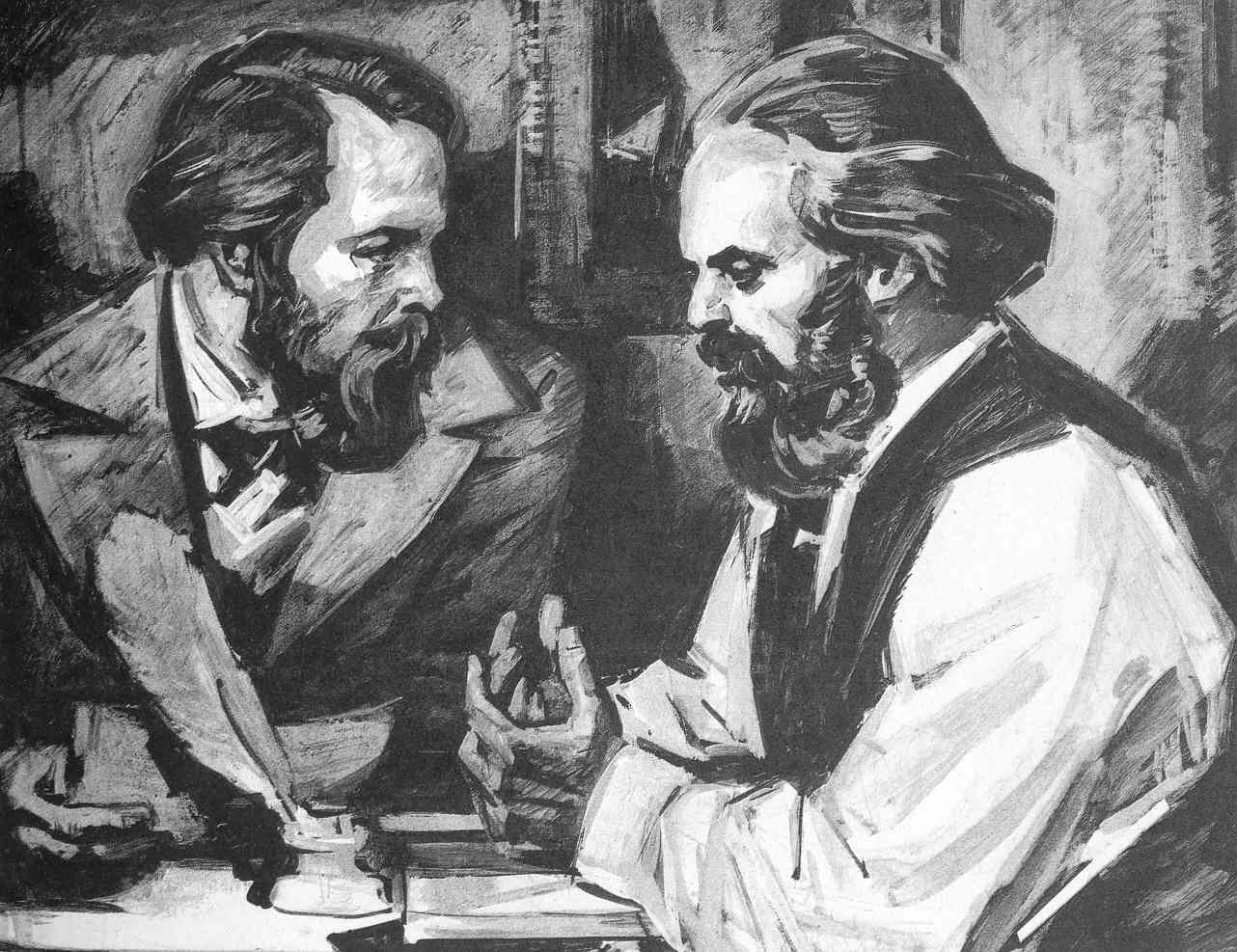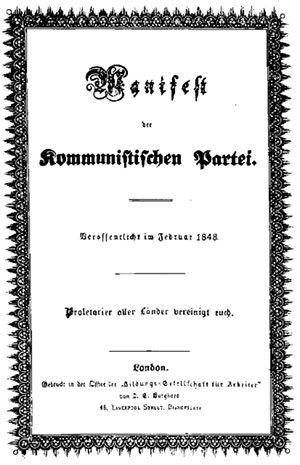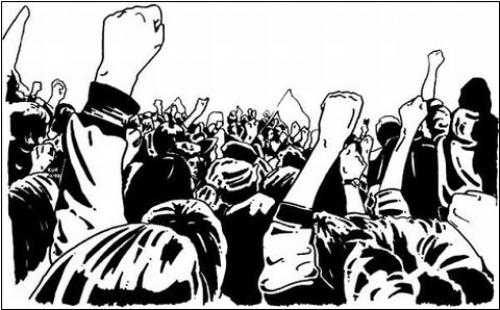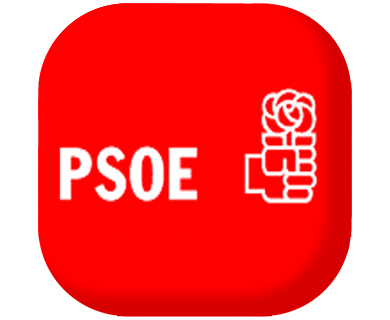I'm Fátima and today I'm going to explain you what we've learnt in Social Sciences lesson.
Today in Social Sciences class we've learnt about scientific socialism or marxism
It was created by Marx and Engels. Marx belonged to a generation of German scholars who appropriated but diverged significantly from the teachings of Hegel. Engels grew up in the environment of a family marked by moderately liberal political views, a steadfast loyalty to Prussia and a pronounced Protestant faith.

https://www.marxists.org/archive/marx/photo/art/marx-eng3.jpg
When they were studying capitalism, they reached some conclusions, reflected on several books like the " Communist Manifesto " and " The Capital ". The Communist Manifesto was written in late 1847 and published in February 1848.




At the end of the class Paqui has tell us to complete a scheme about anarchism, that is what we're going to learn next day.
We've also learnt some new vocabulary:
alienation: alienación
class struggle: lucha de clases
commune: comuna
surplus value: plusvalía
scientific socialism:socialismo científico
material things: cosas materiales
wellbeing: bienestar
That's all today! See you in class :)

http://www.historytoday.com/sites/default/files/communistmanifesto.jpg
The main ideas were:
- Class strugle and proletarian revolution:
Class struggle between oppresors and oppresed. In the 19th century, the class struggle was between the burgueoisie and workers. The workers' conditions and exploitation by the burgeoisie, lead to the proletarian revolution, that was divided into two stages:
The 1st stage was the dictatorship of the proletariat. They wanted to take the State and used it to make private property collective.
The 2nd stage, where they formed de Communist society. It was a society without classes,State. or
private property

http://www.leftcom.org/files/styles/galleryformatter_slide/public/2008-03-11-pugni-alzati.jpg
- Proletariat empoverishment
- Trust in industrial workers only (as revolutionary)
- Workers' organization:
They considered that workers have to organise themselves in parties and unions to get ready for the revolution, but also to participate in politics, so different socialist parties like PSOE (Spain) were created following marxist ideas.

http://petreraldia.com/wp-content/uploads/2014/05/logo-psoe.jpg
- Surplus value:
Workers produced profits with they work, but they didn't enjoy because they contributed to increase capitalist's wealth.

https://anticap.files.wordpress.com/2015/01/money-trick.jpg
- Workers' alienation:
Workers became slaves of the machines due to the monotonous work in factories. This situation destroyed creativity.
At the end of the class Paqui has tell us to complete a scheme about anarchism, that is what we're going to learn next day.
We've also learnt some new vocabulary:
alienation: alienación
class struggle: lucha de clases
commune: comuna
surplus value: plusvalía
scientific socialism:socialismo científico
material things: cosas materiales
wellbeing: bienestar
That's all today! See you in class :)
1 comment:
Hello Fátima.
You've done a good work, althouh there are some things you could improve:
- You could explain the idea of proletarian impoverihment better: Marx and Engels thought that the development of capitalism would make that the living conditions of workers would get worse due to concentration of wealth in the hands of a few. This is one of the ideas in which they were right, because this is what is happening now. Workers have lost and continue to lose rights they had achieved through organization and protests and wealth is more concentrated in the hands o a small minority every day.
- Don't forget that what Marx and Engels did was study and explain wht they thought would happen. They didn't give instructions of what to do. They were critical to capitalism and explained its contradictions and imperfections and thought that a communist society would be a better alternative for everybody.
These are my corrections:
Today in Social Sciences class we've learnt about scientific socialism or Marxism
The main ideas were:
- Class struggle and proletarian revolution:
History has always been a class struggle between oppresors and oppresed. In the 19th century, the class struggle was between the burgeoisie and workers. The workers' conditions and exploitation by the burgeoisie would lead to the proletarian revolution, that would have two stages:
The 1st stage was the dictatorship of the proletariat. The workers would take the State and use(d) it to make private property collective.
The 2nd stage, where the y would form a Communist society. It was a society without classes, State or private property
- Proletariat impoverishment
- Workers' organization:
They considered that workers had to organise themselves in parties and unions to get ready for the revolution, but also to participate in politics, so different socialist parties like PSOE (Spain) were created following Marxist ideas.
- Surplus value:
Workers produced profits with they work, but they didn't enjoy them because they contributed to increase capitalists’ wealth.
At the end of the lesson Paqui has told us to complete a scheme about anarchism, that is what we're going to learn next day.
Bye!
Post a Comment